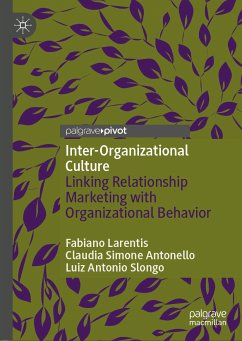In order to be developed, inter-organizational relationships, as well as organizational cultures, rely on communication, learning, trust, commitment, and shared meanings and symbols. This book discusses the emergence and development of an inter-organizational culture, in which meanings, beliefs, and values of people from different companies interact. It proposes that inter-organizational culture can be seen as a culture of intersection, because of the association of cultural perspectives between suppliers and intermediaries. The more the parties are motivated to maintain the relationship, the more willing they are to invest in that relationship, which minimizes the risk of dissolution, promotes interaction, and contributes to cultural changes.
The authors consider organizational culture through a three-perspective framework involving integration, differentiation, and fragmentation, at the intersection of which inter-organizational culture develops. This book will provide scholars with a better understanding of the connection between relationship marketing and organizational behavior, through the emergence of a specific culture.
Dieser Download kann aus rechtlichen Gründen nur mit Rechnungsadresse in A, B, BG, CY, CZ, D, DK, EW, E, FIN, F, GR, HR, H, IRL, I, LT, L, LR, M, NL, PL, P, R, S, SLO, SK ausgeliefert werden.









